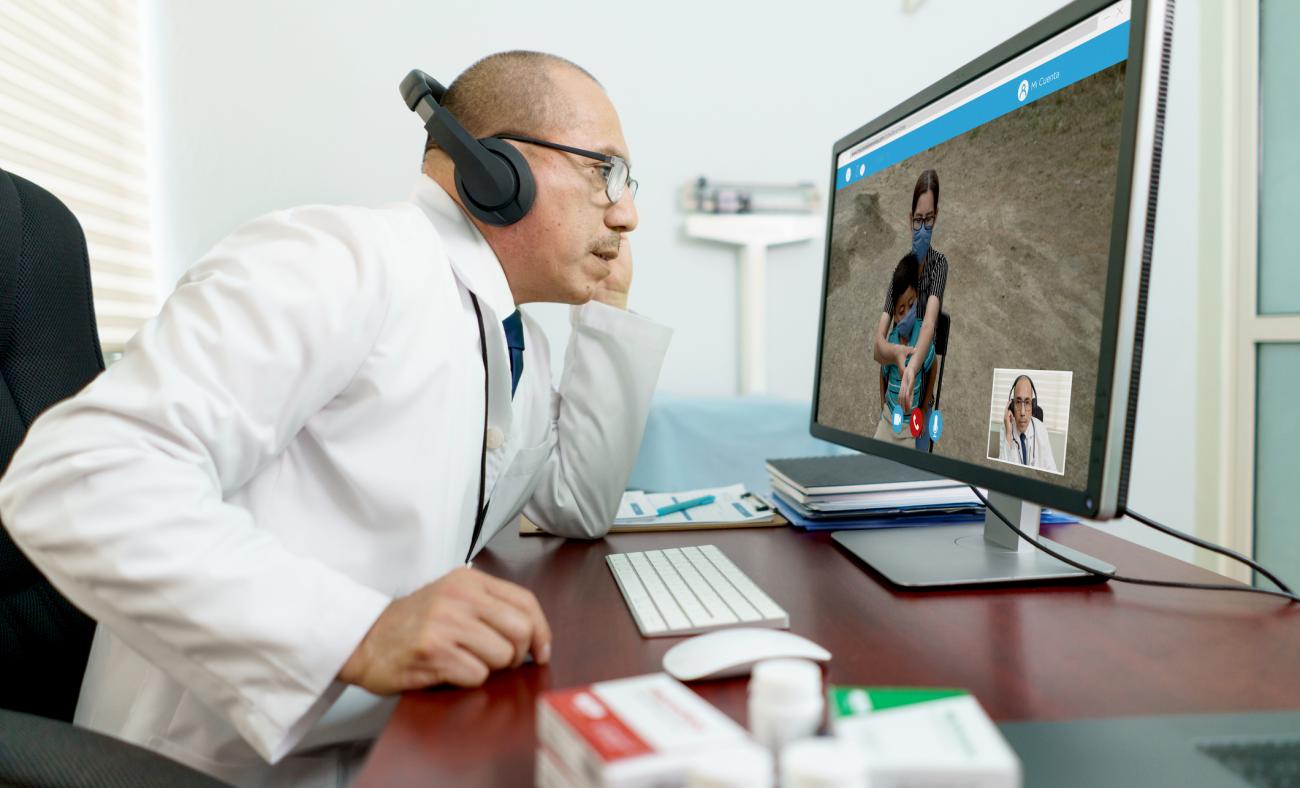
Researchers share insights on how the move to virtual medical appointments impacted physicians’ sense of self and care delivery.
The COVID-19 pandemic brought about unprecedented change in the day-to-day practices of many physicians. Transitioning to virtual care impacted how physicians felt about many aspects of their roles and increased stress, according to the results of a study led by Vancouver Coastal Health Research Institute researcher Dr. Kevin Eva and Island Health internal medicine clinician and researcher Dr. Valeria Stoynova.
Major life changes have been shown to trigger a negative response in the brain, which can elevate feelings of anxiety and depression.
“We found that the physicians we spoke with endured additional tension during the transition to virtual care that cut across all aspects of their practice, resulting in some experiencing mental health struggles and all to search for mitigation strategies,” says Eva.

For their study, Stoynova and Eva interviewed 10 physicians from various specialties, including four family physicians, one general pediatrician, three general internists, one geriatrician and one infectious disease specialist. Participants practised mostly a mix of inpatient and outpatient care, with a median of seven years practising medicine.
Prior to the start of the global COVID-19 pandemic in March 2020, participants reported conducting patient appointments over the phone or via video conference less than 10 per cent of the time or not at all. Following the start of the pandemic, all participants used telehealth with at least 50 per cent of their non-hospitalized patients. Two participants transitioned to offering only virtual care.
A new model of support for patients and physicians
The research team found that participants had similar views on the changes they faced. Getting a glimpse into a patient’s home environment over video conference afforded participants important health information that would otherwise be unknown to them, such as the presence of tripping hazards on the floor of a patient with balance difficulties.

Technological challenges and expectations surrounding the availability of physicians for virtual appointments were points of friction many participants noted during their conversations with the research team.
Participants also worried about not being able to communicate effectively or provide emotional support to patients, or diagnose mental health conditions or cognitive impairment.

On the other hand, meeting virtually came with the added advantage of having easier access to patients’ family members and allied care providers, such as physiotherapists and support workers, over the phone or during a video call. These touchpoints made it easier for participants to gain additional insights into the patient’s well-being, such as changes in behaviour, mobility and mood.
“Virtual care is like a double-edged sword that can have both positive and negative impacts on patient care.”
Virtual appointments led some participants to experience feelings of guilt about not being able to offer a complete assessment, and angst from being disconnected from their patients. These feelings led many participants to have an altered perception of not only how they delivered care, but how they defined themselves as physicians.
“Being able to see a patient in person can provide nonverbal cues on their health and wellness,” says Eva. “It can also make it easier to maintain the patient’s attention and share teaching tools with them during the appointment or perform a quick physical exam.”
Additional diagnostic testing was more likely to be ordered by participants during a virtual appointment than during an in-person visit to compensate for the lack of a physical exam.

“Based on our study, we found that there is likely a need for issuing recommendations on how to safely and accurately conduct virtual appointments,” says Stoynova. “These lessons could be incorporated into physician training at medical schools or through professional development opportunities, for example.”


